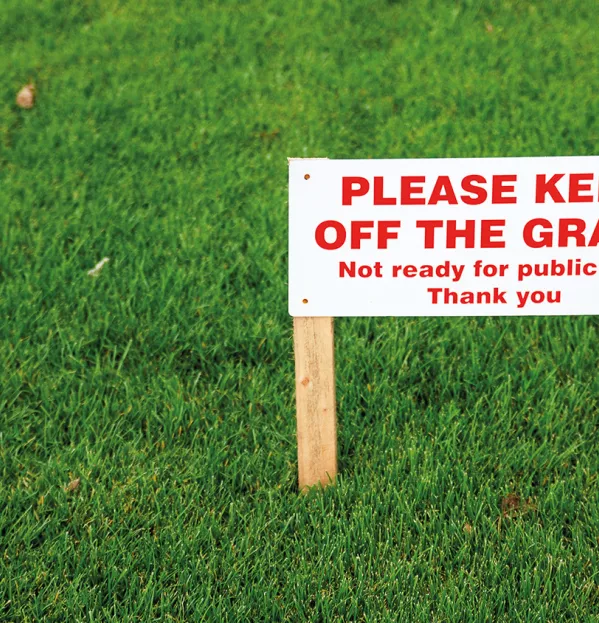Playing fields imperiled by new political loophole

The transfer of school playing fields is an emotive subject. When a field disappears, the change often can’t be undone. The loss of spaces for physical activity is all the more damaging at a time of rising child obesity rates.
In the past, those seeking to protect playing fields were able to console themselves that councils wanting to sell off school land first had to secure the approval of the independent School Playing Fields Advisory Panel.
But concerns are now being raised about a new “loophole” that allows ministers to step in and fast-track certain cases, bypassing the panel, if they help deliver the government’s policy of giving parents free childcare, The change will make it easier to build nurseries on school playing field sites.
One charity is so alarmed by the vulnerability of school land that it is preparing to take legal action to “lock down” playing fields, so that they can be enjoyed by future generations.
Earlier this month, the Department for Education published the latest tranche of decisions on the disposal of school land, covering decisions taken between March and June 2017. One decision related to “a disposal of a small area of playing-field land” at St George’s Church of England Aided Primary School in Lincolnshire. The disposal, signed off in April, was designed to “enable the provision of a nursery to meet the demand and delivery of 30 hours’ free childcare for working parents of three- and four-year-olds in the local area”.
“This project was approved for government funding and the consequent disposal was considered and decided by ministers without consideration by the playing-fields panel,” the decision notice adds.
Robert Goodwill, the minister for children and families, confirms that there has been a change of policy to circumvent the panel in these cases. “As part of our commitment to the 30-hours offer, we have introduced a new policy for handling requests to transfer playing fields to both maintained and private nursery providers,” he says.
Where an application relates to providing extra nursery places in line with the childcare pledge, and where the government has granted funding to increase capacity, ministers can bypass the panel.
Sidestepping scrutiny
The move has alarmed those trying to safeguard school playing fields. “We are disappointed and concerned to see any disposal of playing-field land bypassing the independent panel set up to scrutinise these applications,” says Helen Griffiths, chief executive of the charity Fields in Trust. With decisions about academy land already outside the panel’s remit, Griffiths says the change “creates a loophole” for maintained schools.
Carley Sefton, chief executive of Learning through Landscapes, says she is “disappointed” about the “fast-tracking of the use of space for nurseries”, which her charity opposes.
Both Fields in Trust and Learning through Landscapes sit on the playing-fields panel.
This month, all working parents who earn less than £100,000 per year each will be eligible for 30 hours of free childcare for three- and four-year-olds, doubling the current 15-hours entitlement. It is feared that this will lead to more playing fields being sold off because of the new loophole.
Griffiths says the scale of applications to transfer school land for nursery provision is not yet clear. But with the government scrambling to provide enough childcare places - it has provided £100 million in capital grants since January to boost capacity - there are concerns that more could be in the pipeline.
“[We] would hope that this isn’t a trend that we will see more of as a result of the pressure to achieve nursery provision,” says Griffiths.
Sefton believes budgetary pressures could “create incentives” for schools to sell land to private nursery providers, as a means of generating cash. “The current state of public finances, especially those associated with education, is putting enormous pressure on schools to explore any option of raising funds,” she says.
Sefton is also worried that fields might be sold with the stated intention of building nursery provision, only for the land use to be changed at a later date.
“Learning through Landscapes would be concerned if land was transferred freehold to a private operator with no protection against future disposal,” she says.
Because school land is so vulnerable, new plans are being launched to protect it from encroachment. Fields in Trust intends to use “deeds of dedication” (see box, left) - a legal mechanism to ensure a landowner cannot change the use of a space - to “lock down” playing fields “firmly and independently”. It is an approach that has already worked well with local authority parks.
“We protect 2,700 spaces across the UK using that methodology and we’ve done that for 90 years,” says Griffiths.
“What we want to do is to start migrating that approach across to school playing fields - which are, as we know, vulnerable - so that we can start to bring an independence of protection to those spaces.”
You need a Tes subscription to read this article
Subscribe now to read this article and get other subscriber-only content:
- Unlimited access to all Tes magazine content
- Exclusive subscriber-only stories
- Award-winning email newsletters
Already a subscriber? Log in
You need a subscription to read this article
Subscribe now to read this article and get other subscriber-only content, including:
- Unlimited access to all Tes magazine content
- Exclusive subscriber-only stories
- Award-winning email newsletters